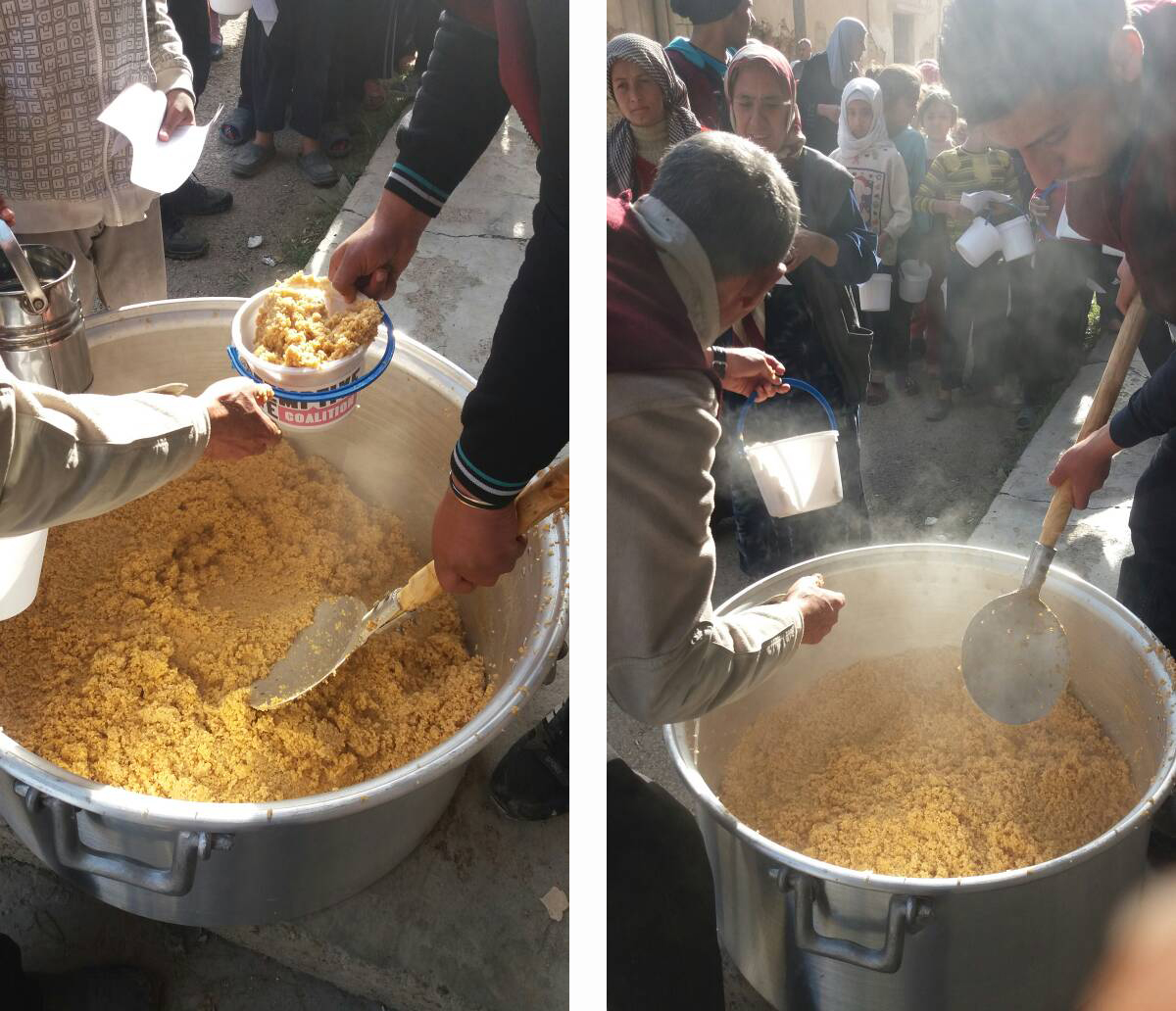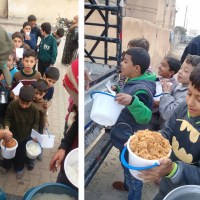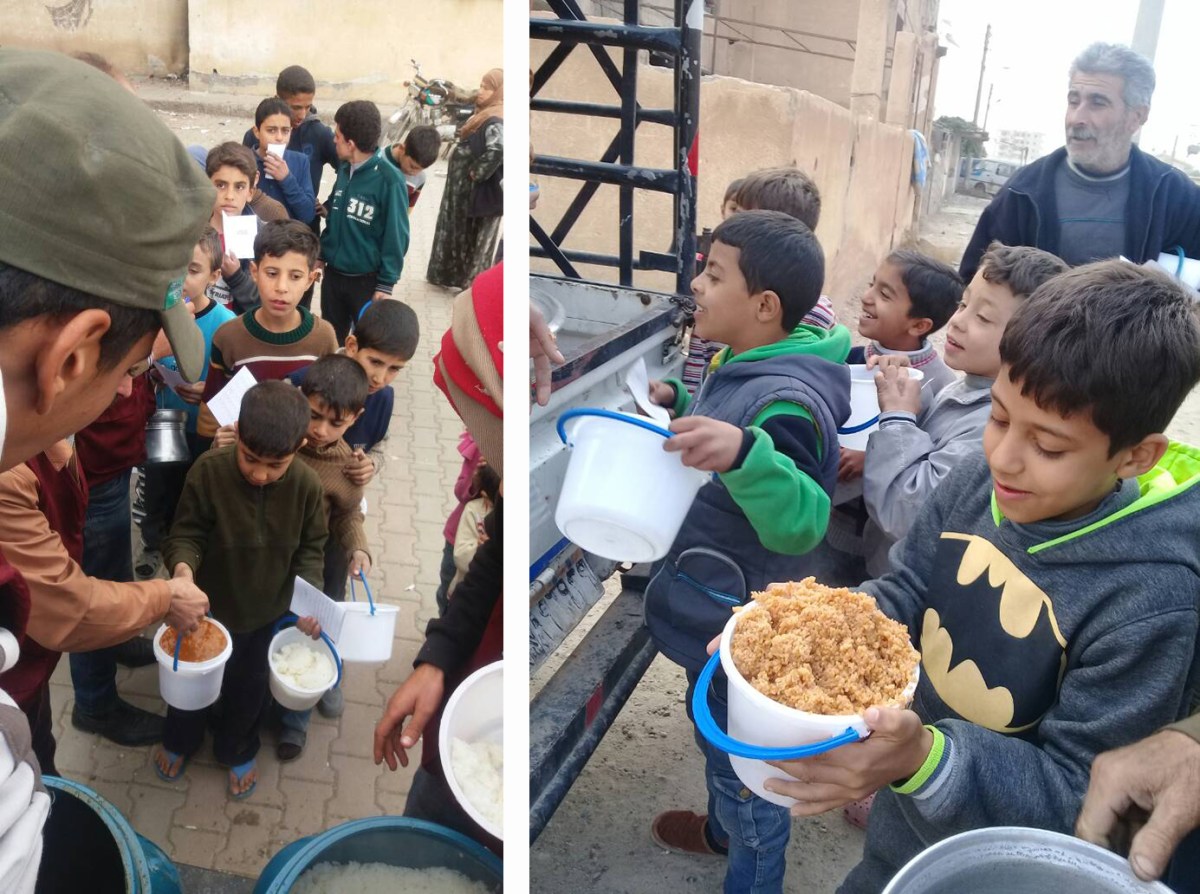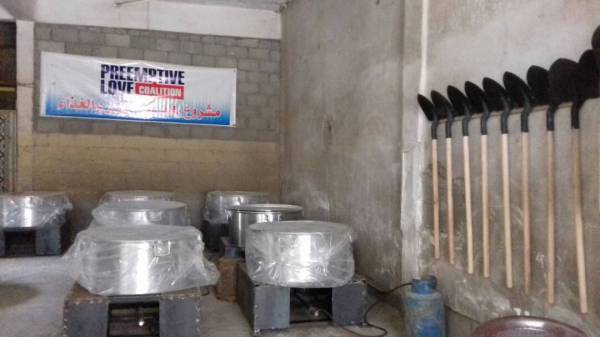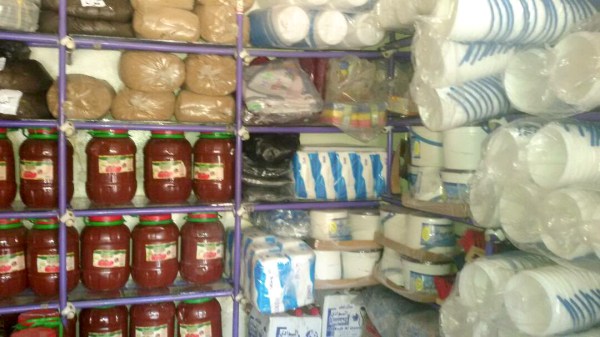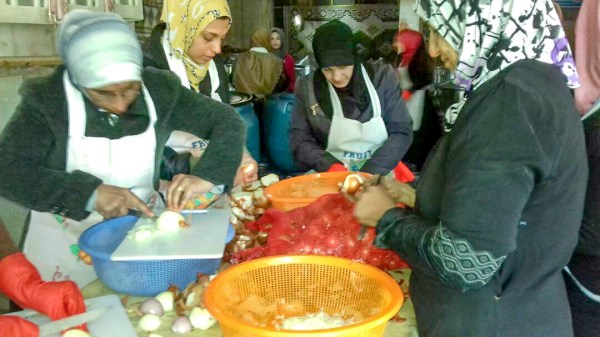While you prepared holiday meals for two or twenty, our team in Deir ez-Zor, Syria cooked, delivered and served 31,000 hot meals to Syrian families each week.
Here’s how that works:
Step 1: Find a suitable location for a kitchen and warehouse. Repair the water and electrical systems, replace windows and doors, and fix anything else damaged by rockets and missiles. Every repair means a little work for a local tradesman trying to get by in a terrible war economy.
Step 2: Install twelve iron stoves and tanks of propane, industrial-sized cooking pots and spades for stirring. Fill the pantry with shelf-stable ingredients for the coming weeks: rice, bulgur, tomato paste, oil, salt.
Step 3: Hire fifty-six local men and women to shop for supplies, cook meals, distribute food, and keep the kitchen spotless. Send out teams to register families who need meals, assess who is the hungriest, and who has the fewest resources. Sign up over 5,000 families.
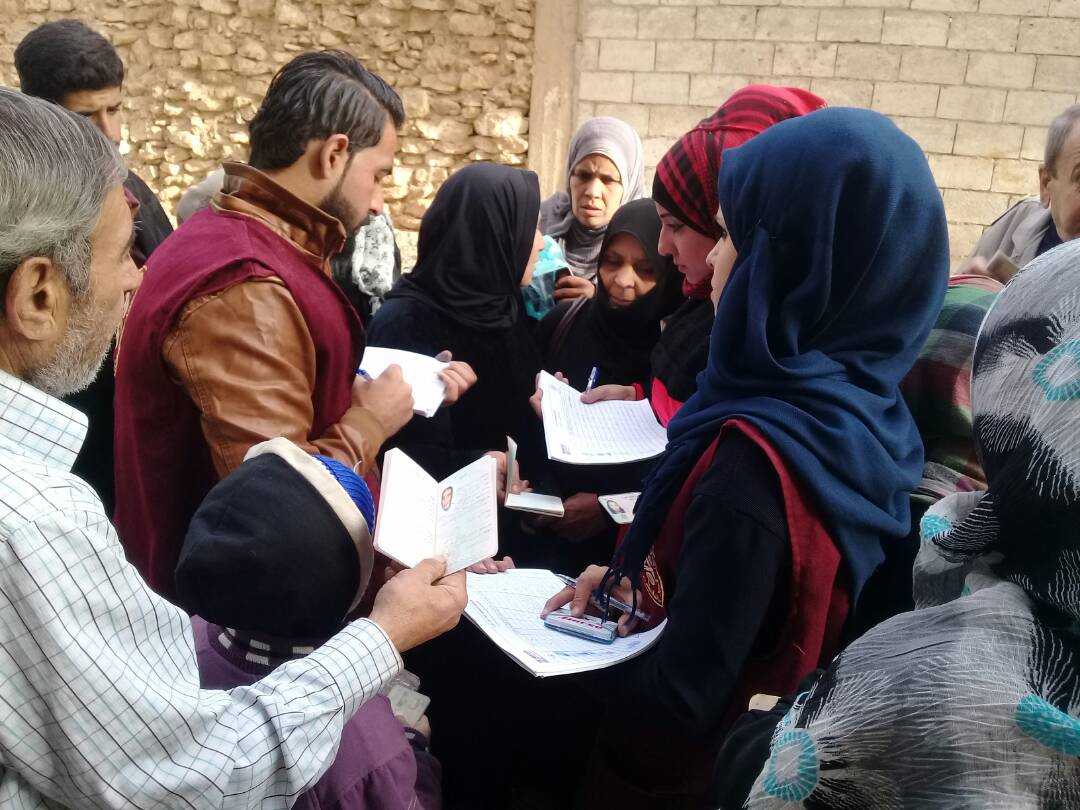
Step 4: Chop, cook, stir. Load the giant pots into trucks. Drive to the neighbourhoods where food and cooking fuel are scarce—where hungry families run toward the truck as it pulls to a stop. Ladle steaming hot grains and beans into buckets that can be easily carried home. By week’s end, 31,000 hot meals have been served to Syrians whose lives were upended by war.
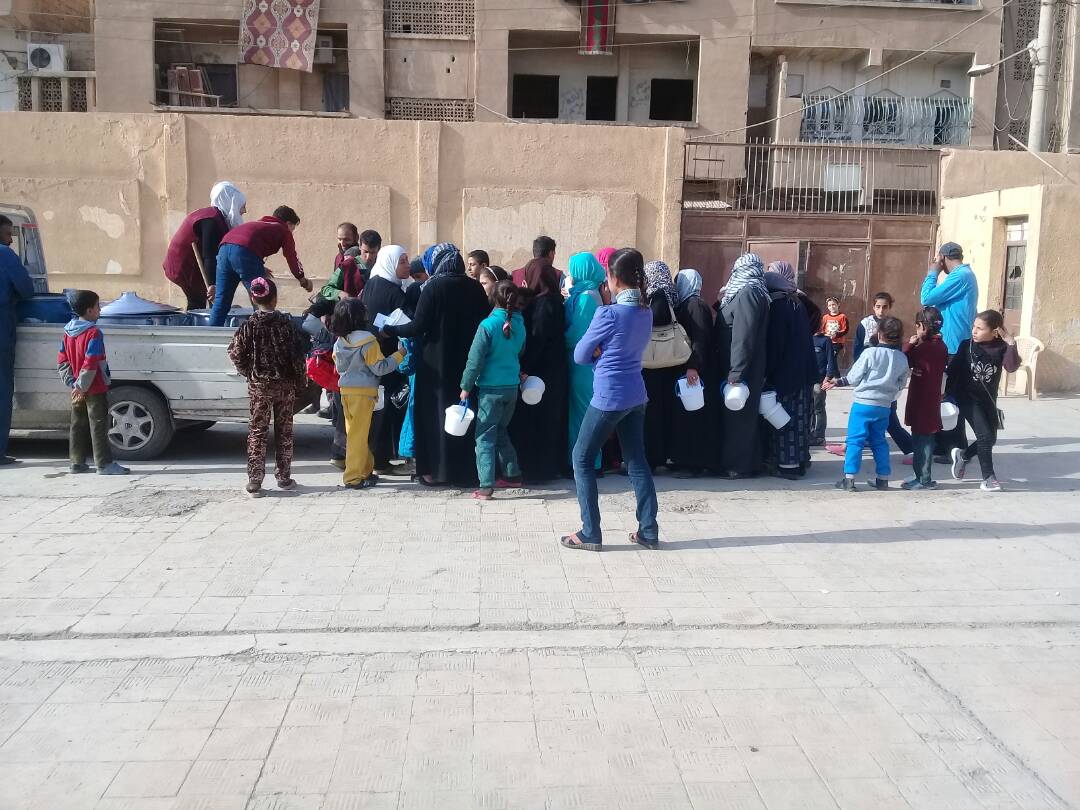
Step 5: Repeat.
The two emergency kitchens you originally funded to serve the Aleppo countryside have now wrapped up. The area is stable, and residents are slowly finding their way back to the lives they knew before the war.
But Deir ez-Zor is still reeling from three years under siege and ongoing attacks. Families are starving—unable to buy food or cooking fuel—and are desperate for relief. Most of them have heartbreaking stories of suffering and lost loved ones over the last three years. They are so grateful that you’re showing up, bringing life and hope back to their city.
You’ve heard us say it many times—the situation in Syria is complicated. It’s a tangled mess, years in the making. But it is not hopeless.
You continue to show up in the form of steaming pots of beans and rice to assure families that they are not forgotten. And every time you show up, you create a piece of the more beautiful world our hearts know is possible. Thank you!
